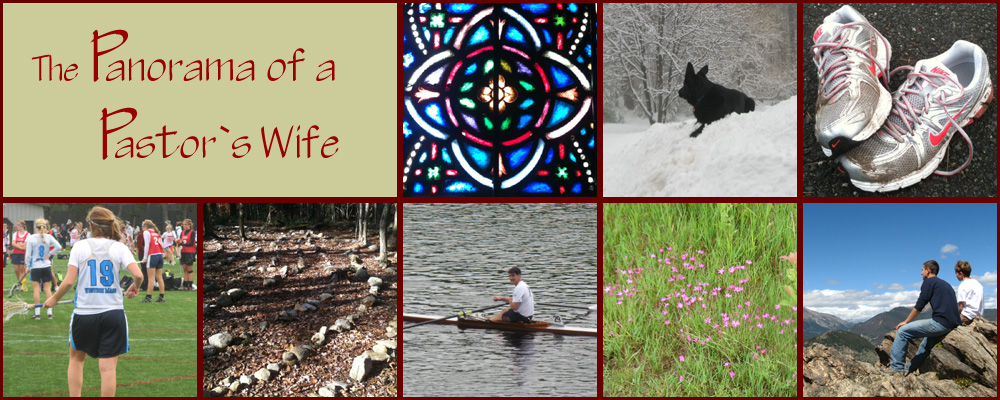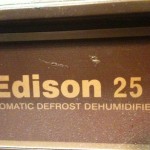We Are What We Say, or Are We?
Good ol’ Hamlet sure has a way with words. The soliloquys are great, of course, but he also knows how to use language just for amusement. His very first lines in the play are sheer fooling around: When the usurper King has the gall to address him as “my son,” Hamlet says, under his breath, “A little more than kin and less than kind.” (I.i.64-65) And then the same calculating Claudius, feigning concern, asks, “How is it that the clouds still hang on you?” Not missing a beat, our hero responds with a pun: “Not so, my lord. I am too much i’ the sun.” (l. 66-67).
This week I’m also having a little fun thinking about a couple of recently created words that are being bandied about among groups studying trends in church affiliation. While people who regularly go to church are not generally called the “churched,” someone apparently decided that it would be accurate to call people who don’t (for one reason or another) attend services “the un-churched.” To be more precise, this term is used particularly for people who never have gone regularly; another term has cropped up to describe those who once did go but have voted with their feet – again for a whole range of reasons – and made for the exits: they are “the de-churched.” If you combine them and toss in anyone else who would say that they don’t have a church affiliation, you have a group — now up to maybe 20% of the population — referred to in one lump as the “Nones.” Not to be confused with the women who wear habits, of course.
studying trends in church affiliation. While people who regularly go to church are not generally called the “churched,” someone apparently decided that it would be accurate to call people who don’t (for one reason or another) attend services “the un-churched.” To be more precise, this term is used particularly for people who never have gone regularly; another term has cropped up to describe those who once did go but have voted with their feet – again for a whole range of reasons – and made for the exits: they are “the de-churched.” If you combine them and toss in anyone else who would say that they don’t have a church affiliation, you have a group — now up to maybe 20% of the population — referred to in one lump as the “Nones.” Not to be confused with the women who wear habits, of course.
I don’t think you have to be an English teacher married to a bishop to appreciate the richness in all of this.
First of all, as one who in fact did not have any significant experience with churches (just a smattering of visits with friends to various houses of worship) before marriage, I can say that it makes me uneasy — no hyphen there– to be called un-anything. It feels a little bit like I’m walking around with some glaring omission, that I’m missing something I didn’t know I was supposed to have in the first place.
I guess the nature of the “un-something” depends on what the something is. Being “unattractive” or “unfaithful” or “uncivil” – these are all negatives. But what about “undaunted” or “unleashed” or “uninhibited”? Now these have some appeal.
Similarly, the people who are identified as “de-churched” might see themselves in a shady realm with the “defrocked” or the “derailed.” Or they could join the more respectable ranks of the “declawed” or the “decompressed.”
Funny thing is, in our house we have a “dehumidifier” in the basement and a “humidifier” connected to the piano upstairs; maybe some day they’ll finally duke it out.
My point is that we need to be careful with our language, with direct meanings as well as with the overtones of our words, especially while trying to welcome in people who may see themselves as completely normal and even fulfilled. There is no question that, for me, coming into an exposure to religion through my marriage has enriched my life; it has been sort of like travelling through new countries in the world and having all of my senses opened to a whole range of experiences.
Still, my ears can’t help but prick up during services when I hear prayers “…for those who do not yet believe.” My husband explains to me that this is just meant to articulate a full throttle faith in what lies waiting for all people who will just recognize God’s love. I think I’m probably not alone, though, in feeling that it sounds a bit condescending; is there one certain kind of belief that is being promoted here? My husband, in turn, would ask me, “Does the desire to share a meal with others seem condescending because it implies we know they are hungry?” It’s a very good thing indeed that our marriage allows me to say I feel uneasy about being told I’m hungry and him to say, “That’s OK, the meal is still on the table.”
Most of us, I think, have a whole range of principles, moral guideposts that we pay attention to; we move, sometimes groping, forward with them as best we can, making adjustments along the way, trying to be steadfast to the bonds that are most important and open to truths wherever we find them.
Whether someone is churched, un-churched or de-churched, what I find most compelling is understanding how each of us might find our own center of gravity — some place inside that helps sustain us through ups and downs and, beyond that, propels us to do good in the world. It might be belief in God or it might be another kind of steadily burning fire.
I love the fact that I can talk about these things with my husband, who, now fully installed, will be working towards making sure each Episcopal church in New Hampshire can be a place where people come together with generous hearts to draw strength and sustenance and light for the main living and working they do outside the walls of the institutional church, in the splendid and tumultuous world.
This I believe: it will be a wonderful adventure all around.




Amen to that Polly. As usual, well said!
I love this piece, Polly! Miss you and Rob.
Enjoyed your essay, Polly. I wish I could remember the terms in linguistics for what is considered the norm and what is considered deviation from the norm: as in “human” (the norm) and “non-human” (all that weird odd irregular stuff that is living but not human). “Unchurched reminds me of that, because it seems to imply that “churched” is the norm (even though the word “churched” doesn’t seem to exist, at least in contemporary usage). Anyway, I appreciate your essay’s tact and compassion in making room for both your views and your husband’s views on the subject. I laughed over the conversation about the meal being on the table. Thanks!